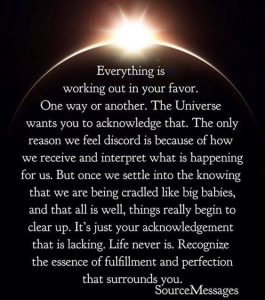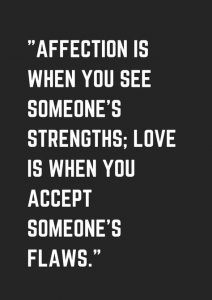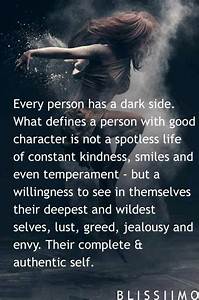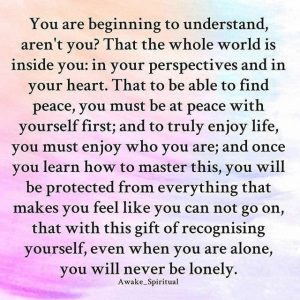Category: Spiritual Writings
Breathe
Calling In The One Video
12 Steps to Getting Real Emotional Honesty
 “Although it is a struggle to stick to it, many of us have been successful at making exercise a priority. From walking more to joining the neighborhood gym, we understand the benefits of physical fitness and do what we can to make it a priority. In fact, there are many that dedicate hours to building up their cardiorespiratory and muscular strength while attending to a healthy diet, but what about emotional honesty?
“Although it is a struggle to stick to it, many of us have been successful at making exercise a priority. From walking more to joining the neighborhood gym, we understand the benefits of physical fitness and do what we can to make it a priority. In fact, there are many that dedicate hours to building up their cardiorespiratory and muscular strength while attending to a healthy diet, but what about emotional honesty?
Emotional honesty can be defined as the ability to communicate our feelings and needs in an honest and respectful way. It means we are aware of our feelings and take the time to experience them instead of masking them with alcohol, drugs, food, and the like. While it isn’t sexy or even comfortable at times to focus on emotional honesty, it does lead to some pretty amazing results in most areas of our lives. So if emotional honesty and living an authentic life is on the “to do” list this year, the following twelve points may help pave the way to Real Emotional Honesty.
1. Promotes Authenticity
Harder than lifting double our body weight over our heads, being emotionally honest is one of the most challenging things we can do. Who wants to admit they hate their job or are unhappy with their spouse? Who wants to feel anything other than the happiness and joy?
Unfortunately, we can’t ignore our negative feelings; they will bubble up at some point, be it tomorrow or years from now, in the form of chronic anger, stress, depression, and the like. By taking an emotional inventory, we are moving towards living an authentic life and promoting a deeper sense of intimacy with the important people around us.
2. Promotes Self-Awareness
To be able to share our true emotions with others we must begin by enhancing our self-awareness. Our default response when asked “How are you today”, is usually something like “fine” or “good”, but fine and good aren’t emotions. Taking the time to ask ourselves how we are feeling may be a clue to why we are yelling at the driver in front of us or eating chocolate fudge ice cream straight out of the container (not that there’s anything wrong with that).
Emotional self-awareness can not only help to explain why we do the things we do, but can help us connect to our feeling selves and expand our emotional vocabulary beyond just “fine” or “good”. With practice, we can identify and experience a feeling more efficiently without experiencing the angry outbursts or bouts of depression that come with lack of acknowledgment.
3. Reduces Stress
How much negative energy does it take to push down our frustration and anger? How many times do we choose to bite our lip and not speak up only to have an angry outburst days later? Emotional dishonesty is a great way to ensure a heavier stress load (and all the negative health outcomes that result).
By learning the skills necessary (i.e. assertive communication) to respectfully share our feelings with others we not only reduce our stress in the long run, but demonstrate a higher level of respect and value within our relationships.
4. Enhances Relationships
Nothing can create an enhanced sense of intimacy and trust as much as emotional honesty can. From professional to personal relationships, being honest with self and others is a not only a component of emotional intelligence but necessary for effective workplace leadership.
 Personal relationships can suffer if we are unable to express what we need. Unfortunately, this lack of honesty within a relationship can result in resentment and anger overtime leading to the end of the relationship. Emotional honesty can not only bring us closer to those we love, but lead to happier and more fulfilling relationships (and who doesn’t want that)!
Personal relationships can suffer if we are unable to express what we need. Unfortunately, this lack of honesty within a relationship can result in resentment and anger overtime leading to the end of the relationship. Emotional honesty can not only bring us closer to those we love, but lead to happier and more fulfilling relationships (and who doesn’t want that)!
5. May Promote Acceptance
There are times when we get ourselves in a situation we aren’t that happy about. For example, our spouse takes a job in another town due to work and uproots the family in the process. Many of us may choose to “make the best of it” or “think positively” which, in turn, only helps to push down those emotions that need to be acknowledged.
Through emotional honesty, we are forced to sit with those negative feelings and move through them rather than ignore them or trying to think on the bright side. The result may lead to an acceptance of what we can’t change and making changes to things we can (i.e. like our perception of the move).
6. May Promote Change
Unlike choosing acceptance, emotional honesty can also promote change once we get real with the origins of our feelings. The changes may be as small as changing our route to work to avoid the traffic or as big as changing careers, towns, or spouses.

By taking the time to ask ourselves the big questions and getting to the roots of our feelings, we may be saving ourselves the pain, discomfort, and chronic disease that comes from the staying the same.
7. Requires Patience
As children, many of us are quick to learn to stifle the crying and anger and put on a happy face to be rewarded. As adults, this lack of emotional authenticity can lead to negative health and relationship outcomes. Taking a course in communication or reading the latest self-help book is great, but it is only through practice and patience that one can hone in on this skill.
For those who desire a positive change to their working and personal relationships, learning the skills is important but being patient with ourselves in putting them into practice is paramount to success. One suggestion may be to find those people who are “easier” to practice on and work up to the harder ones later. It may include writing down our feelings first and practicing what to say and how to say it. There are many books published on the subject and offer worksheets to help us become real with ourselves and those around us.
8. Make No Promises
If one is emotionally honest, she may enjoy a higher quality of life and the positive health benefits that come from it. Unfortunately, committing ourselves to becoming an emotionally honest and assertive communicator does not promise those around us will reciprocate.
Relational outcomes may or may not be positive depending upon how the receiver hears the message. It is one thing to work on our own “baggage” and learn how to communicate our needs to others, it another thing to expect others to do that (hard) work as well.
9. Strengthens Our Courage
Courage is not about being fearless but pressing on despite the fear. Emotional honesty promotes courage because it demands a level of openness that can create a sense of vulnerability. It takes courage to present our real selves to others for fear we won’t be loved (or liked) if we reveal our more prickly bits.
Let’s face it; it is easier to pretend to be happy, agreeable, and positive than to show our real feelings. Just like anything else, overtime being more aware and honest with our feelings will become second nature and (bonus) may promote others to do the same.
10. May Influence Others
One of the biggest under-appreciated benefits of emotional honesty is the effect it has on those around us. From friends and family to work colleagues, when we allow ourselves to “put it out there” and be honest with our feelings and needs, there is a good chance a few others may follow.
Those leaders who are comfortable with showing vulnerability and emotions (in a professional yet human manner) demonstrate a level of humanity that isn’t present in those that strap on the same happy face day in and day out.
11. The Key to Good Health
By burying our true emotions and selves we invite more negative feelings and more stress into our lives. If emotional honesty can decrease our stress level it will also reduce the physiological effects that come with chronic stress.
As with exercise and eating well, being emotionally authentic and open with ourselves and others will strengthen our immune system, lower our heart rate and blood pressure, and provide us with all the good stuff that comes with a heightened quality of life!
12. Needs Constant Attention
When it comes to muscular strength we all know if we don’t use it we will soon lose it. The same can be said for the practice of emotional honesty. Just like any behavior change, it takes a while before it is second nature and, even then, it can still take effort.
Although it may take some time to reap the benefits (like exercise) once they show up, it may become clear that it is easier to maintain emotional honesty than it is to revert back to wearing that mask.
By: Kathi Cameron, activebeat.com
Affection Vs. Love
The Most Important Question
 “Perhaps the most important question you can ask a potential love partner relates to their relationship with ‘the shadow’ – their own, and the shadow that emerges in the relationship itself.
“Perhaps the most important question you can ask a potential love partner relates to their relationship with ‘the shadow’ – their own, and the shadow that emerges in the relationship itself.
That is, ‘How much work are you willing to do on yourself and the relationship when the rough going ‘hits the fan’? Are you willing to go as deep as we have to go to work it through, or are you only interested in a breezy, low-maintenance relationship?’
Few people ever talk about this during the romantic phase, because they are not envisioning the challenges to come, but it is an essential inquiry. I have known many people who were shocked to watch their ‘great love’ walk out the door when the connection required personal accountability and therapeutic work-through. Some of us will brave the journey; others will flee the fire. Some of us will do the work to transform our stories into the light at their source; others will run away with their ‘tales’ between their legs, only to find out later that their tales go with them everywhere they go.
If you can determine someone’s willingness at the beginning, you can save yourself a lot of trouble later.”
~an excerpt from ‘An Uncommon Bond’
You Are Beginning To Understand
Your Shadow Side
 “Your ‘shadow’ is nothing more than the part of you that is unconscious and therefore hidden from your awareness. The unconscious is filled with all kinds of things that you have judged as ‘unacceptable’ about you. And shadow work is nothing more than the art of making the unconscious, conscious and the unacceptable, acceptable.”
“Your ‘shadow’ is nothing more than the part of you that is unconscious and therefore hidden from your awareness. The unconscious is filled with all kinds of things that you have judged as ‘unacceptable’ about you. And shadow work is nothing more than the art of making the unconscious, conscious and the unacceptable, acceptable.”
Teal Swan
On Its Way To You
Find Someone Who Speaks Your Language
 5 Things Single People Can Teach Those In A Relationship
5 Things Single People Can Teach Those In A Relationship
2. You don’t have to compromise your priorities and goals.
If you have goals in life that you want to achieve and certain priorities to meet, just because you’ve found a partner doesn’t mean you suddenly need to compromise those goals.
I’ve always thought that the healthiest relationships involve two people who have room to grow together. It’s unfair to expect one person in the relationship to give up everything for the other.
You should both be able to pursue your dreams.
 3. Your privacy is important.
3. Your privacy is important.
It can be hard to find privacy when you have a partner, especially when you’re living together.
While some people argue that complete transparency is necessary, like sharing email passwords and having access to each others’ phones, I strongly disagree.
In the relationship I have now, I still have my privacy. No one is looking over my shoulder, asking to see my email, or anything like that. It’s not needed.
We trust one another to make the right choices in this relationship. Your privacy is an important thing to hang onto.
 4. You should still spend time with your friends.
4. You should still spend time with your friends.
How many times in your life has a good friend of yours gotten into a relationship and they’re just a goner after that? It’s happened to me plenty of times.
I consider it a type of manipulation nine times out of ten, and it’s a sign that your friend might not be in the healthiest relationship. It’s something I avoid like the plague myself.
If I want to go out with friends and my partner doesn’t, then I go out and my partner doesn’t. And the same if I’m not in the mood to go out.
5. Intense arguments aren’t needed to solve your problems.
This is one I’ve never quite understood. I have never once had an intense argument with a partner. Tempers have certainly flared, but nothing like a drag-out brawl between two people. Why? Because it’s not necessary.
Consider it this way: if you had a major disagreement with a coworker, would you pull them into the break room and start yelling? There’s no need for it.
It doesn’t accomplish anything. And that goes for relationships too. If you’re upset, collect yourself before you talk. Know what you want to say.
And don’t let the little things build up into one explosive big thing. Don’t let minor annoyances bubble over into complete disdain.
higherperspectives.com




















